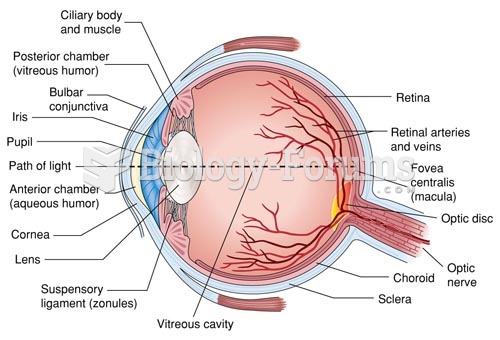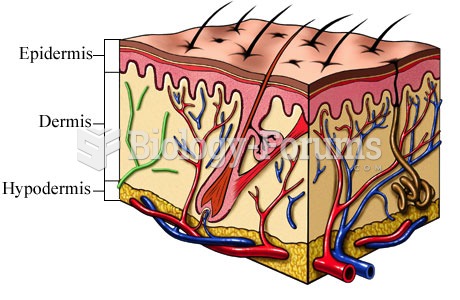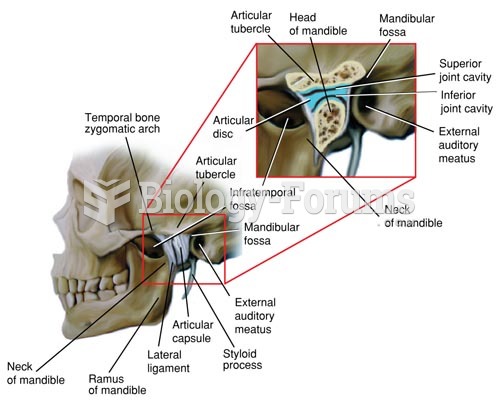|
|
|
When blood is exposed to air, it clots. Heparin allows the blood to come in direct contact with air without clotting.
A seasonal flu vaccine is the best way to reduce the chances you will get seasonal influenza and spread it to others.
A cataract is a clouding of the eyes' natural lens. As we age, some clouding of the lens may occur. The first sign of a cataract is usually blurry vision. Although glasses and other visual aids may at first help a person with cataracts, surgery may become inevitable. Cataract surgery is very successful in restoring vision, and it is the most frequently performed surgery in the United States.
There are 60,000 miles of blood vessels in every adult human.
In 1864, the first barbiturate (barbituric acid) was synthesized.







